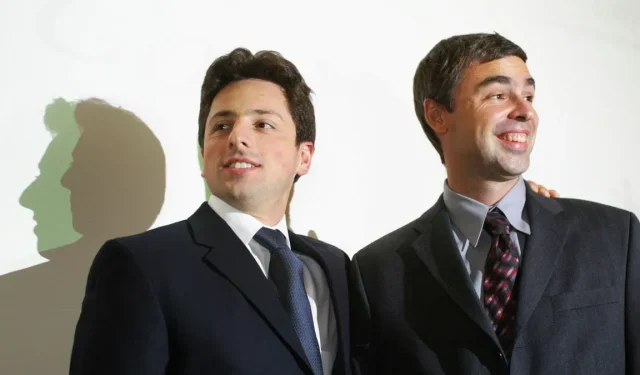Google recalls Larry Page and Sergey Brin to fight ChatGPT. These two men should shape the American AI giant’s entire strategy.
Google had to recall two of its founders in the face of the growing threat of the artificial intelligence project. OpenAI was founded seconds ago and Elon Musk was one of the first investors. Recently, the company’s projects have been the talk of the town. DALL-E, which can generate images from simple custom text, has sparked a lot of controversy about the validity of AI art and its impact on human artists. The company’s latest project, ChatGPT, also threatens Mountain View’s dominance.
Google recalls Larry Page and Sergey Brin to fight ChatGPT
ChatGPT can be useful in many areas. It can help you write a song, post some basic code, or solve math problems. It can also break complex topics into smaller, more manageable chunks, and that might be something Google is worried about right now. While search engines are designed to get information and send you ads, many users use them to find answers to their questions. Its popularity is such that, despite proven privacy issues, it remains the most popular search engine in the world. If ChatGPT can better find and return information, Google’s market share could be in jeopardy. It’s so easy to see why the American giant wants to work twice as hard on this topic.
According to The New York Times, the success of the OpenAI chatbot forced Google to launch Code Red. To cement its position as a tech giant, Alphabet CEO Sundar Pichai even asked the company’s two founders to return to spearhead Google’s AI strategies.
In December, Larry Page and Sergey Brin, who left their full-time positions at the company in 2019, took part in meetings with top Google executives. The two men were now only involved in extremely innovative projects that could pay off if they were successful. This time, the consequences are more serious. The two former executives are well-versed in the company’s AI strategy and, if the sources are correct, have already laid out plans to bring more AI features to Google’s search functionality.
The two men must shape the American giant’s entire artificial intelligence strategy.
And the future of Google AI should not be limited to search. Theoretically, this could also fill the gap created by the company’s recent layoffs of about 6%, or 12,000 people. What role will AI play in the future of the company? It’s hard to say, but Alphabet isn’t starting from scratch. While Google’s chatbot is still a long way from the success of the Turing test, its own development is already well ahead. Enough to fool your own engineers. Last year, Blake Lemoine even claimed that the laMDA AI had “a mind, a personality, and a soul.”He even went so far as to hire a lawyer to try and defend AI rights. In the end, this man was fired by the Mountain View firm.
Google’s LaMDA AI is a high-tech chatbot that can “learn”over time. Interaction with users shapes and improves the responses that the robot gives. In theory, this should make the responses more specific, on more diverse topics, and more “human”. This style of AI can also scale poorly, as Microsoft discovered a few years ago. The Google project is still in development, but when you know the resources of the giant, when you remember the huge progress made in recent years and the fields of application of AI, you can only get excited about this AI race.


